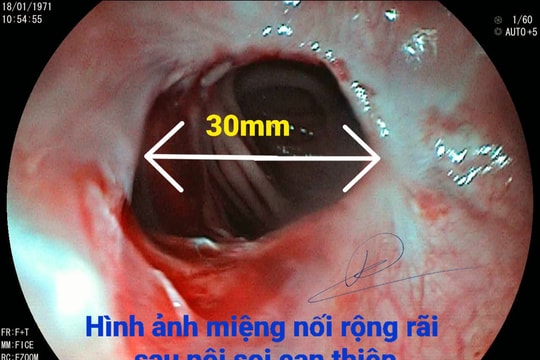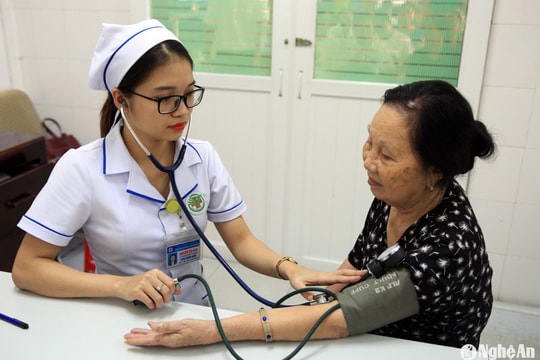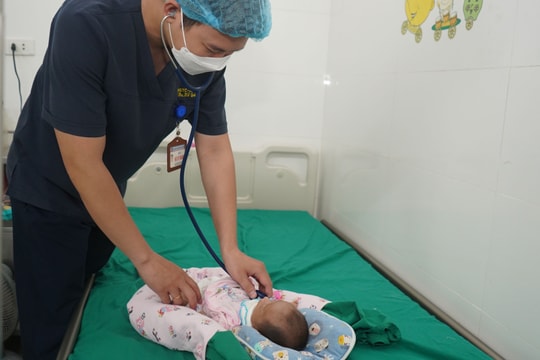Nghe An strives to overcome difficulties in medical examination, treatment and epidemic prevention and control
At this time, Nghe An's health sector is facing many challenges due to the disease situation, increasing demand for health care; the lack of high-quality human resources and human resources at the grassroots health level... Regarding this issue, Nghe An Newspaper had an interview with Pharmacist Tran Minh Tue - Deputy Director of Nghe An Department of Health.
PV:In the first 6 months of 2024,demandmedical examination and treatmentof the peoplein the province continues to increaseHigh. Faced with this pressure, what solutions has Nghe An Health Department implemented to improve the quality of medical examination and treatment at medical facilities, sir?
Pharmacist Tran Minh Tue:In recent times, the Nghe An health sector has been facing difficulties: Lack of high-quality medical human resources, especially the lack of human resources at the grassroots level; limited investment resources; increasing demand for medical examination and treatment, and health improvement of the people... These difficulties have posed many challenges and pressures for the sector in meeting the requirements for the quality of medical examination and treatment in particular.
To meet the requirements, Nghe An Health Department has focused on directing medical units in the province to continuously strengthen hospital quality management activities, focus on administrative reform, improve the quality of medical examination and treatment (focus on developing high-tech expertise, transferring techniques from the provincial level to the district level and grassroots level); develop and perfect high-tech and specialized techniques that have been deployed at the unit.

With the satellite hospital project, the industry has built and formed a network of nuclear hospitals and satellite hospitals. 100% of nuclear hospitals and satellite units have been connected, agreed to develop a plan for transferring and receiving technical transfer. Technical transfer training of nuclear hospitals to satellite hospitals has been vigorously implemented.
To date, core hospitals have transferred 76 advanced techniques to satellite hospitals. In the first 6 months of 2024, core hospitals (Nghe An General Hospital, Nghe An Obstetrics and Pediatrics Hospital) have successfully transferred techniques in the fields of electrocardiography, pediatric emergency resuscitation, and pediatric anesthesia and resuscitation to 3 satellite units: Quynh Luu General Hospital, Ky Son Medical Center, and Quy Chau Medical Center.
With the North Central high-tech project, Nghe An Health Department has continued to direct units to maintain and improve the techniques deployed in the previous phase such as: intervention in the heart, brain, organ, and peripheral vessels; in vitro fertilization; open heart surgery, hip and knee replacement; cranial and spinal neurosurgery; radiotherapy; jaw bone grafting...
To improve the capacity of grassroots health care, especially at the commune level, the health sector regularly inspects and supervises district and commune level units in the province to directly direct epidemic prevention and control work and medical examination and treatment for people in the area; issues professional guidelines, such as guidelines on implementing models for treating hypertension and diabetes at health stations...
To date, the province has 320 communes meeting national health standards, accounting for 69.56% (expected to reach 78% by the end of 2024). 100% of commune health stations have implemented management and treatment of hypertension, with initial good results.
PV:Although many remarkable achievements have been made, in reality there are still many cases of patients being transferred to the Central level. Could you tell us about the current limitations in medical examination and treatment in Nghe An? What needs to be done to overcome these limitations?
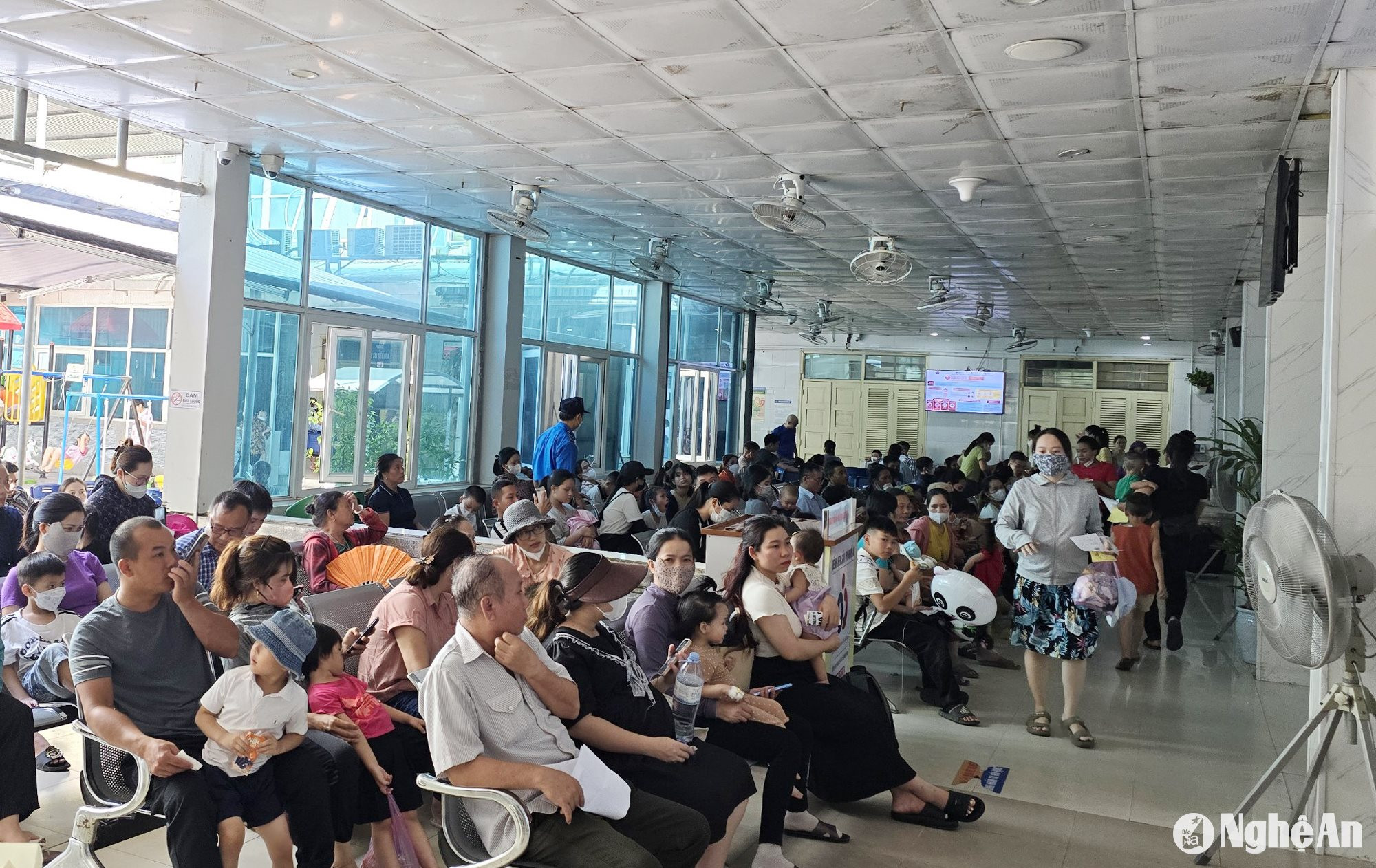
Pharmacist Tran Minh Tue:Nghe An health sector still has some problems such as: The implementation of autonomy in hospitals is increasingly showing difficulties, requiring appropriate policies and solutions soon; limited investment resources; inadequate remuneration policies for staff, doctors and nurses...
In medical examination and treatment units, the infrastructure is not uniform. The implementation of technical expertise development in some mountainous areas (Ky Son, Tuong Duong, Con Cuong, Que Phong, Quy Chau, Quy Hop, ...) is not commensurate with the medical examination and treatment needs of the people. These things have caused the overload situation at some medical examination and treatment facilities at the provincial and upper levels.
To overcome the limitations, the provincial health sector has strengthened its direction, management, supervision, inspection and examination; provided training and guidance on regulations in medical examination and treatment; developed and implemented plans to develop human resources, facilities, equipment, and create a health network system that develops evenly among all levels; and resolutely implemented approved plans and projects.
In the coming time, the industry will continue to promote the implementation of satellite hospital development projects, projects to support a number of medical units in Vinh city to develop high technology so that Vinh city can become a specialized medical center in the North Central region, remote medical examination and treatment project; direct Nghe An Oncology Hospital to complete the dossier to soon have a Decision as a final-level hospital in the North Central region; guide Nghe An General Friendship Hospital to complete the dossier to submit to the Ministry of Health for recognition as a unit qualified to perform liver transplant techniques.
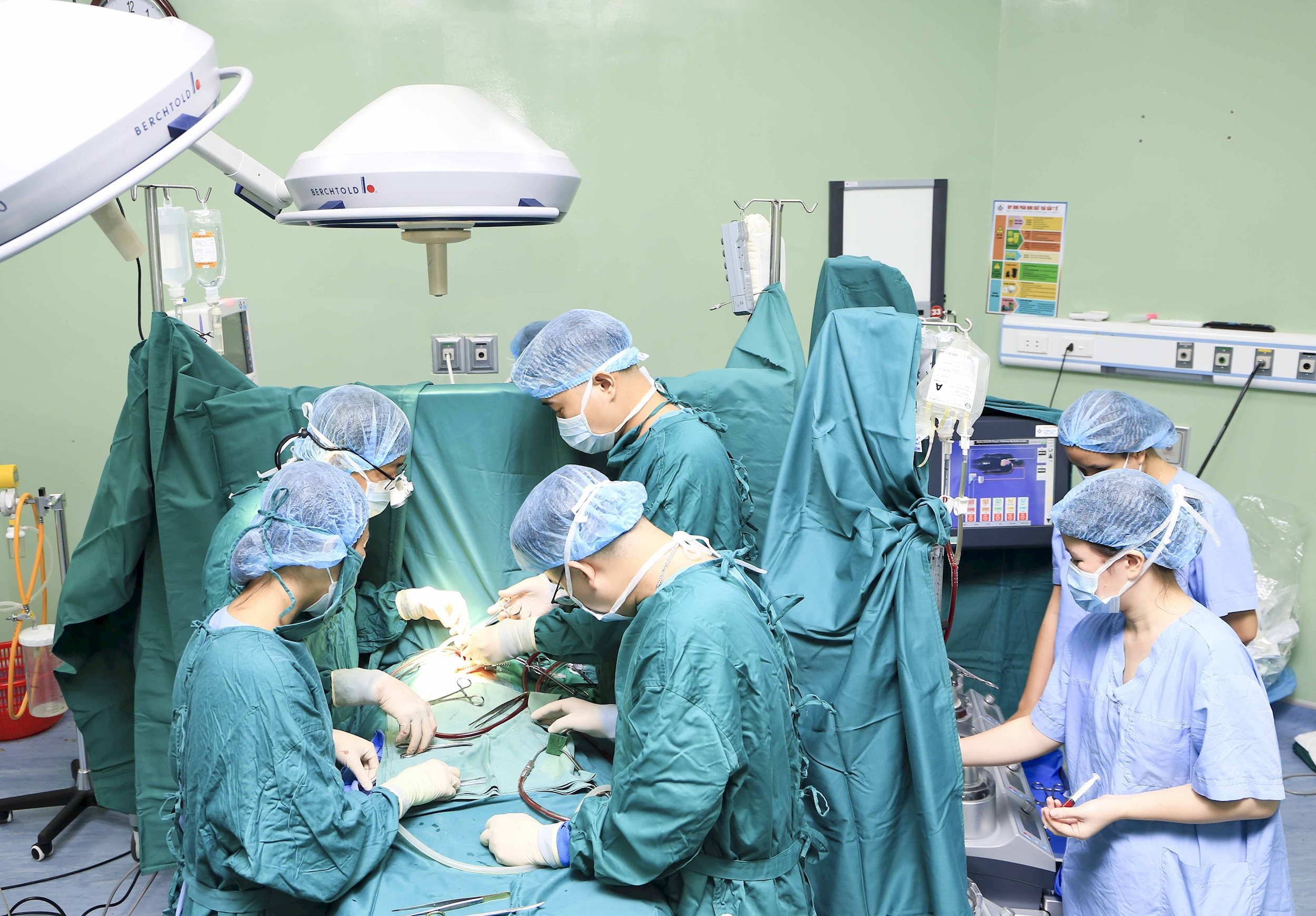
The sector also promotes quality improvement activities at medical examination and treatment facilities; invests in infrastructure, equipment, attracts and trains human resources to deploy technical development; encourages units to gradually increase their level of autonomy; strongly deploys the application of information technology in hospital management and payment of medical examination and treatment costs under health insurance; regularly maintains activities to improve medical ethics at all levels in conjunction with the implementation of "Innovation in service style and attitude of medical staff towards patient satisfaction".
PV:In 6 monthsearly 2024, in the province there have appeared a number of dangerous epidemics such as dengue fever, measles, whooping cough, rabies...UMBRELLACan you tell us about the current epidemic prevention and control work in the province?
Pharmacist Tran Minh Tue:In the first 6 months of the year, Nghe An recorded a total of 76 cases of dengue fever in 13/21 districts, cities and towns, with no deaths.
Along with that, the province has also recorded the appearance of infectious diseases with 89 cases of whooping cough in 17/21 districts, cities and towns; 66 cases of measles in 12/21 districts, cities and towns. Rabies still exists with 3 cases and deaths in Con Cuong, Que Phong and Thanh Chuong districts.
The main cause is still the subjectivity of the people, not getting vaccinated against rabies after being bitten by animals. The province also recorded 9 cases of Japanese encephalitis in 7 districts, with no deaths; 34 cases of hand, foot and mouth disease; 9,721 cases of influenza of all kinds; 62 cases of Covid-19, with no deaths... The reason for the emergence of infectious diseases is because the province has a large area, convenient trade and travel, so the risk of disease invasion is very high. In Nghe An, the local weather is hot and humid, with a lot of rain, which is a favorable condition for pathogens and disease vectors to develop. In addition, due to changes in climate and environment, the biological characteristics of pathogens also change, making the development of epidemics more complicated and unpredictable.
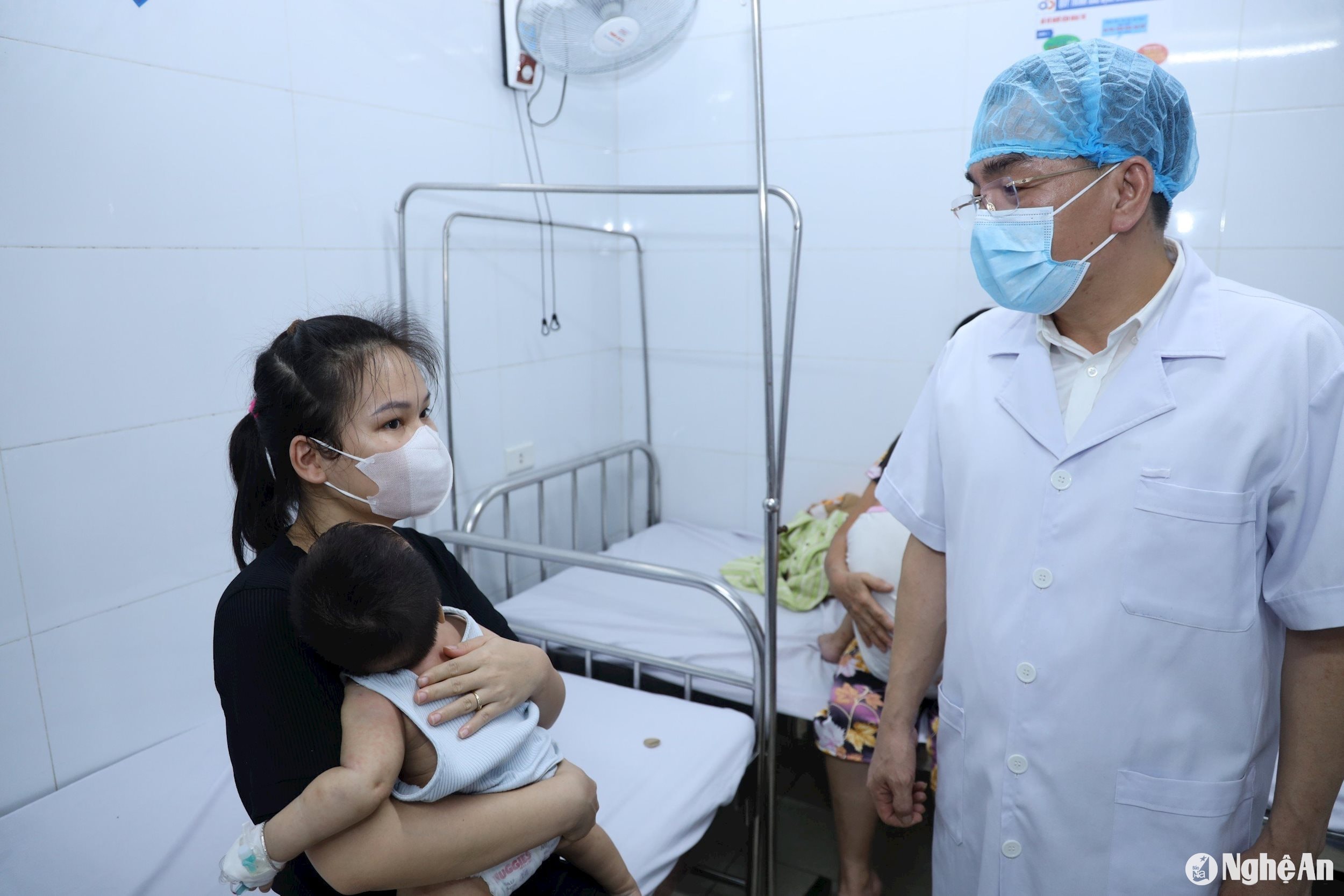
Vaccine-preventable infectious diseases such as measles, whooping cough, etc. increased compared to the same period in 2023 due to reduced immunity, low vaccination rates for some vaccines in the expanded immunization program in some localities, and delayed vaccination due to interruption of vaccine sources from the Central Government.
In addition, there is a lack of human resources for epidemic prevention and control at all levels, and there is insufficient equipment and chemicals for epidemic prevention and control. The Steering Committee for Epidemic Prevention and Control has not been really interested and determined in epidemic prevention and control at times and in some places... Some people are still subjective, negligent, have an attitude of relying on the government and the health sector, and are not active and proactive in participating in epidemic prevention and control activities according to instructions.
Despite facing many epidemics, however, Nghe An Health Department and all levels and sectors in the province have done a good job in prevention and control. The outbreaks were quickly controlled, contained, and extinguished, with no major outbreaks.
PV:As he discussed,thoseIn the last months of 2024, Nghe An still has risks of disease outbreaks. What prevention and control activities has the provincial health sector implemented to prevent the above risks?
Pharmacist Tran Minh Tue:With the permanent role in the prevention and control of infectious diseases, the provincial health sector has been advising the provincial People's Committee to direct the prevention and control of epidemics in the province; grasp information about the development of the epidemic to have timely instructions; organize inspections and supervision of epidemic prevention and control work of districts, towns and cities.
In the last 6 months of 2024, the sector will continue to issue directives, plans, and develop training courses... on disease prevention and control, expanded vaccination; develop plans to mobilize the entire political system, departments, branches, and organizations... to participate in disease prevention and control according to disease classification as well as the nature of the disease; continue to direct units to deploy disease prevention and control activities to promptly respond to disease developments, avoiding being passive and confused.
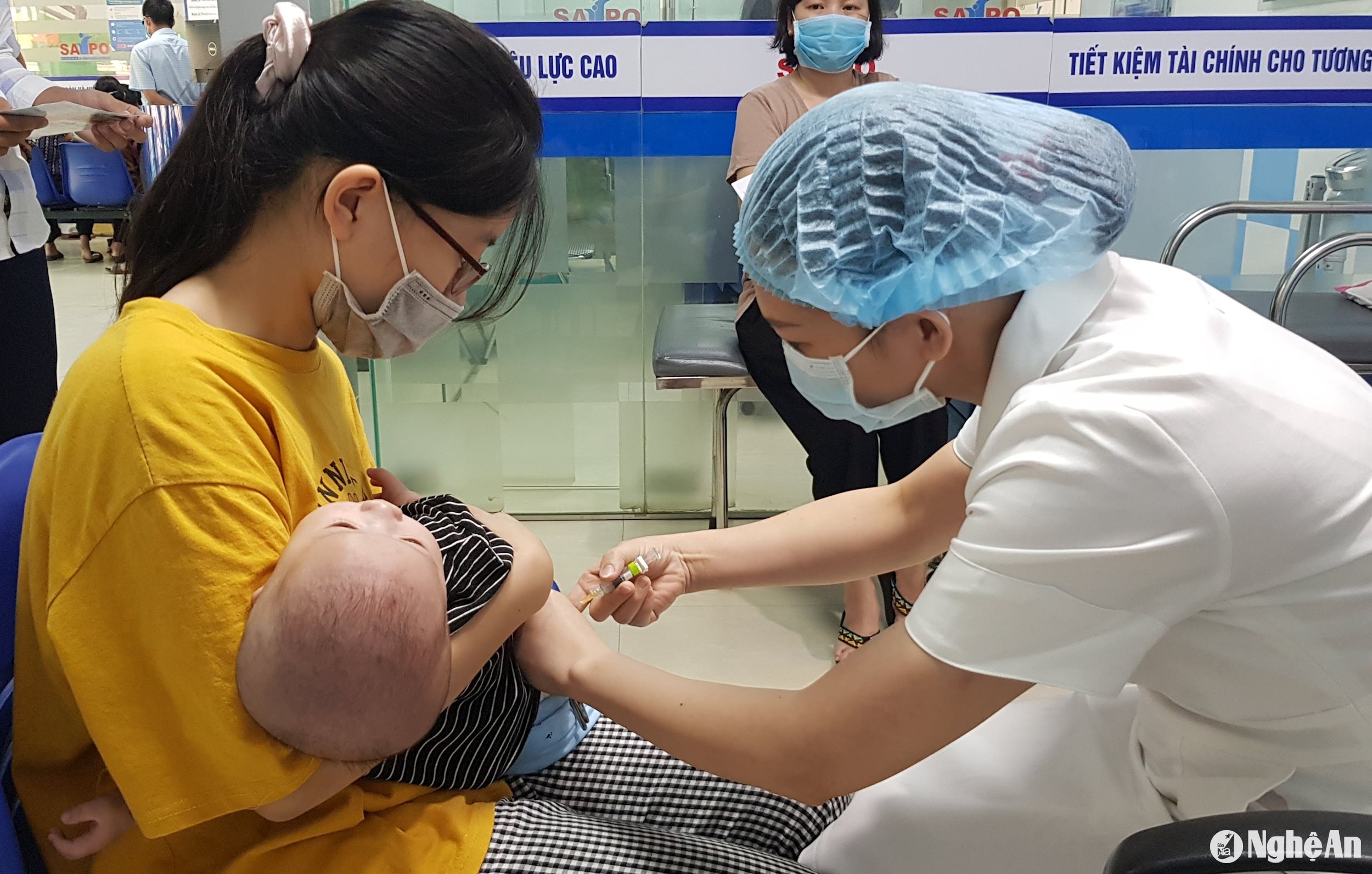
The sector also focuses on inspecting and supervising the work of preventing and controlling infectious diseases, expanding vaccination in 21 districts, towns and cities in the province; organizing a network of epidemic surveillance from the grassroots to the provincial level; strengthening epidemic surveillance in old epidemic areas, key epidemic areas, and seasonal epidemic surveillance. Focusing on monitoring mosquitoes transmitting Japanese encephalitis and dengue fever in key epidemic districts such as Quynh Luu, Hoang Mai town, Dien Chau, Con Cuong, Anh Son, etc. Continuing to direct general and specialized hospitals in the province to monitor and detect infectious diseases causing epidemics, avoiding missing patients; early detection of the first cases, on-site treatment and thorough handling of epidemics to avoid spreading into large epidemics.
Nghe An Health Sector will also coordinate with departments, branches, organizations, and mass media agencies to widely disseminate information about common dangerous epidemics in the locality; promote environmental sanitation propaganda, socialize epidemic prevention and control work in the community... Strengthen vaccination work to prevent and control infectious diseases by receiving, distributing and organizing vaccinations in the expanded immunization program, Covid-19 vaccination; basic immunization injections, booster injections to ensure safety and effectiveness. Direct facilities to prepare adequate human resources, medicine, and equipment for epidemic prevention and control.
Pharmacist Tran Minh Tue - Deputy Director of Nghe An Department of Health
PV:Thanks for the conversation!

